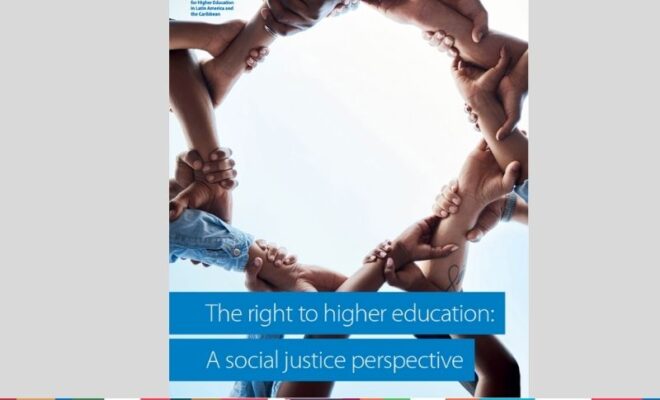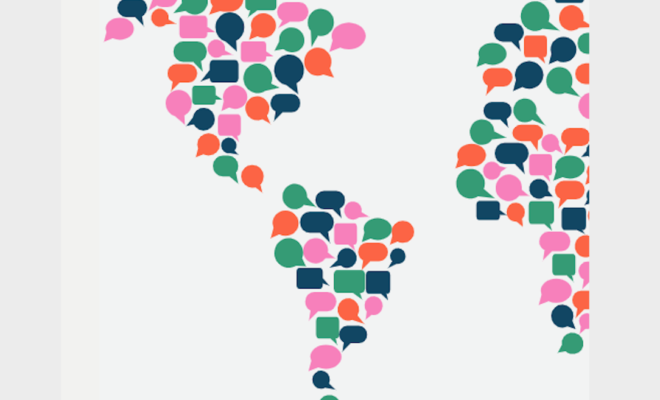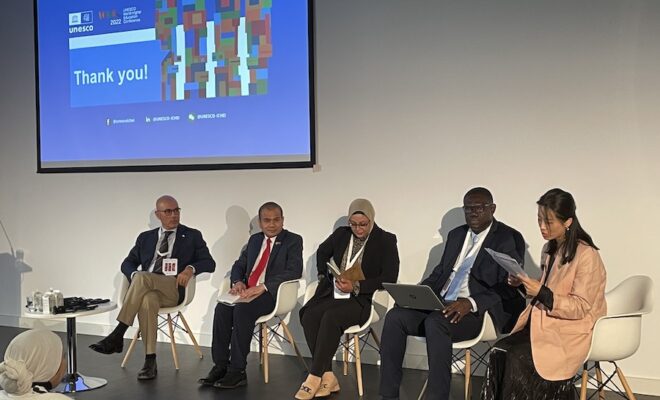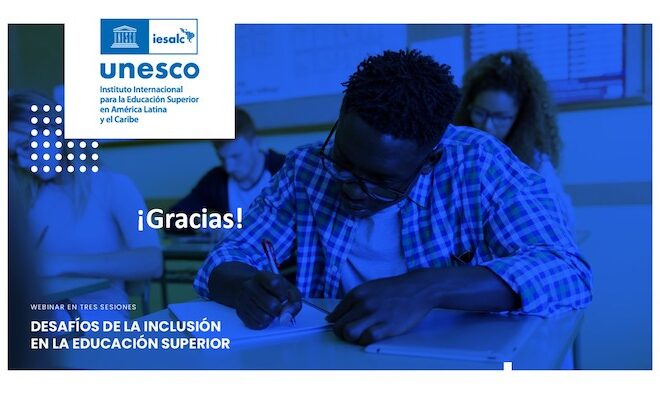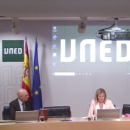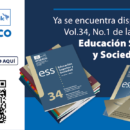Cycle Challenges of Inclusion in Higher Education: Webinar 3 “Participation Dimensión”
Some ideas from the speakers
–Validity of the theme of inclusion… Leaving no one behind, Francesc Pedró. Director of UNESCO IESALC
We must be aware that universities can do more so that our differences are not only recognized and made visible, but also to become an occasion to celebrate the diversity that we have as a humanity.
–Conceptual Framework of Inclusion in Higher Education, Carmen Márquez Vázquez. Autonomous University of Madrid, Spain.
Inclusive participation has three sub-dimensions: everyone must be part, feel a fundamental part of the university system and take part in it. It is a multidimensional process, which must be elaborated, deliberately cultivated and must contemplate the entire university community.
-Inclusion of PDI and PAS with disabilities in universities, María Vicenta Mestre Escrivá, Rector of the University of Valencia, Spain.
The University of Valencia has 5 different programs for the inclusion of people with disabilities, including support grants for teaching staff, researchers and administrative and service staff.
–Gender gaps in university governance and teaching careers in Peru, Carmela Chávez Irigoyen. Pontificia Universidad Católica del Perú, Peru.
There are invisible gender gaps in Peruvian universities. Although undergraduate enrollment of women has increased (almost 51%), their participation is still low in the faculty and in senior management positions.
–Sense of community in student retention in Bogotá, Pilar Mendoza. International Research Center for the Development of Education, Colombia.
In Bogotá, a sense of community has been forged in marginalized minorities through Youth Participatory Action Research, achieving belonging, positive relationships and partnerships in a team for change.
-Reality of the Afro-descendant population and their inclusion in higher education in Brazil, Maria Nilza da Silva. Coordinator of the Nucleus of Afro-Brazilian Studies of the State University of Londrina, Brazil.
Brazil has about 210 million inhabitants, 55.4% of whom are black, with an illiteracy rate of 27.5%. Affirmative actions, such as participation quotas in higher education, have been established to overcome racial confinement.
–Afro-descendants and indigenous people in Central America, Santiago Ruiz, Director of Research, Universidad Nacional Autónoma de Honduras, Honduras.
Afro-descendants and indigenous people in Central America have between 15 and 18 times fewer opportunities to access higher education. In order to put an end to cultural colonialism, Afro and Indo-American epistemology must be valued and professionals must be trained to take the lead.
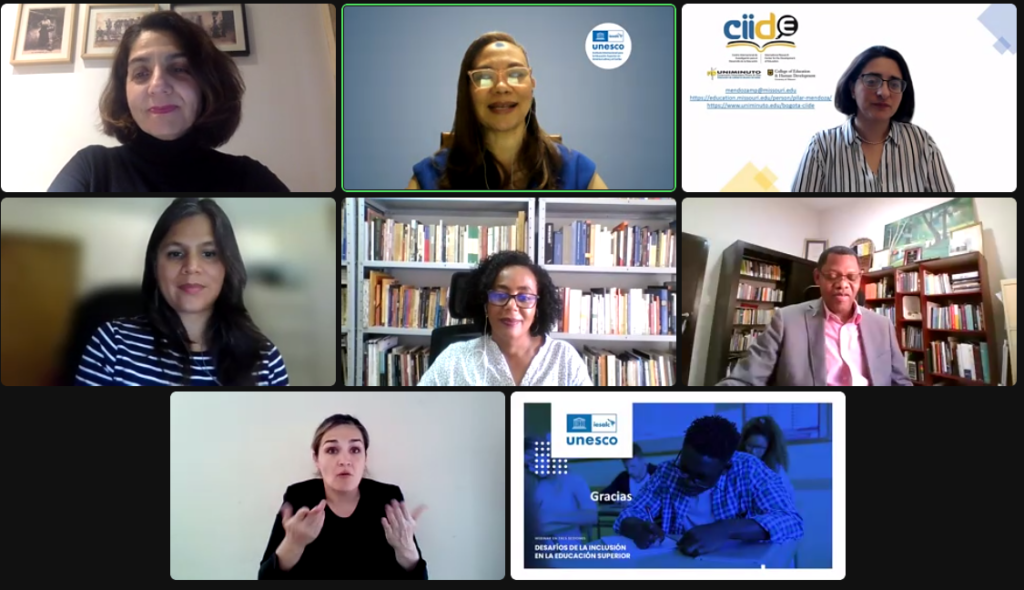
Presentations (only available in Spanish)
Inclusión del PDI y PAS con discapacidad en las universidades, María Vicenta Mestre Escrivá. Rectora de la Universidad de Valencia, España
Sentido de comunidad en la retención de estudiantes en Bogotá, Pilar Mendoza, Centro Internacional de Investigación para el Desarrollo de la Educación, Colombia
Afrodescendientes e indígenas de Centroamérica, Santiago Ruiz. Director de Investigación de la Universidad Nacional Autónoma de Honduras, Honduras
RELATED ITEMS
